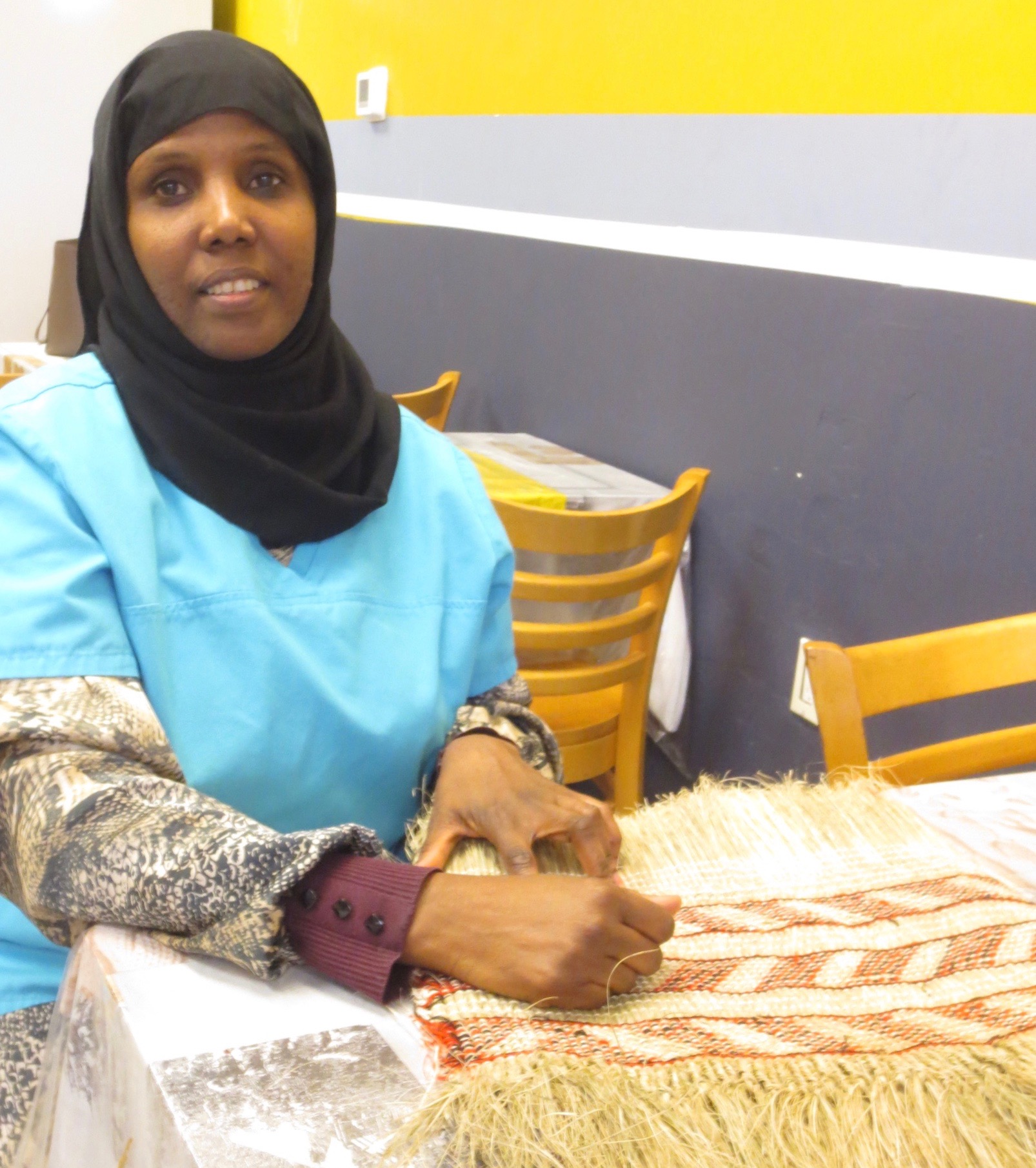
Sector: Social & Human Services
When Zuhair Ali immigrated to Canada in 2012, she knew she was embarking on a journey unlike any she’d faced before. Life in Somalia had come with its own obstacles, certainly, but this new place, with its unfamiliar languages, customs and vastly different climate, presented a new set of challenges for Ali and her children.
“I came here for a better life for me, and for my children,” she says. “For a safer life.”
Although Ali had experience working as a chef and a midwife in Somalia, she found it difficult to find lasting employment in her new home country. She worked as a cleaner while studying to improve her English at a local college, learning from her children along the way.
In time, Ali realized her story was not unique. As she connected with other recent immigrant women, it became increasingly clear that many of them – particularly those from Somalia – faced limitations that left them stuck at home, unable to work or participate in community life. So last year, she and nearly 20 other women formed the Guuto Mothers’ Cooperative, an organization designed to share skills and encourage financial empowerment among immigrant women.
“A lot of us couldn’t find jobs, and those of us who did were not able to change jobs because we might not find another. We started to ask ourselves, ‘What can we do to change our lives?’” says Tarik Accord, one of the co-operative’s early members. “We decided to focus on what we could do, what was actually in our power. And we realized what we could do was help each other and help ourselves build a better life for our families and our children.”
Before coming to Canada, most of the co-operative’s members had gainful employment working as midwives, caterers, tailors and designers. Upon immigrating to Canada, many found themselves unable to find meaningful work, instead experiencing increased scrutiny due to their linguistic abilities and religious practices.
“For many women newcomers, it can be very hard to work and live here, particularly if you wear the hijab. And it’s very sad when you have children who see their mother is depressed and feeling like she can’t succeed here. A family can’t really be healthy if mom feels like she can’t do anything and is limited in so many ways,” says Accord.
Through Guuto, members created a platform to teach each other new skills while creating meaningful employment. In the summer of 2018, the co-operative began offering sewing lessons out of a small classroom above an African grocery store just north of Edmonton’s downtown core. Students produced traditional and custom dresses and designs, which were then sold at local handmade markets throughout the remainder of the year.
“Being able to sell what we make, it makes us proud,” says Accord. “It’s very hard to start a small business on your own, but working together we’re making it happen.”
These sewing lessons and markets were just the beginning for Guuto. By late 2018, the co-operative was looking for a new home, a place where members with other skills could put their talents to good use. With the help of the Social Enterprise Fund, they secured a location on Edmonton’s lively and eclectic 118th Avenue. The space offers ample room to continue offering sewing lessons, as well as an industrial kitchen for the co-operative to run a cafeteria and catering services. It’s the next step in these women’s journey to finding financial empowerment and inclusion in their new home country.
For Ali, the kitchen is Guuto’s most promising development yet.
“Back home, people love my food. I was always very popular for my cooking. Now, with Guuto, I can keep cooking and sharing with everyone here,” she laughs.
“We live in Canada. We are Canadians and we’re not going anywhere. We just want to grow here and help other women make their own success as well,” says Accord.
In the time since opening, Guuto’s membership has expanded to include nearly 50 women from the Somali community, although memberships are not limited to any cultural or ethnic group.
“With Guuto, we want to be able to help any woman from anywhere who is struggling or trying to get out of poverty. We want to share our experiences, our struggles, and grow to support each other,” says Accord. “With Guuto, we can be independent. And we can make our lives better.”
SVI Alberta is a conference held in Alberta where entrepreneurs, impact venture leaders, and changemakers gather to build their network and learn from each other through sharing experiences in a safe and supportive space.
Edmonton 3 October 2024 The Edmonton Community Foundation today announced the appointment of Ryan Young as the Director of the Social Enterprise Fund.
After thirteen years in the Executive Director chair at SEF, it is time for me to move on.